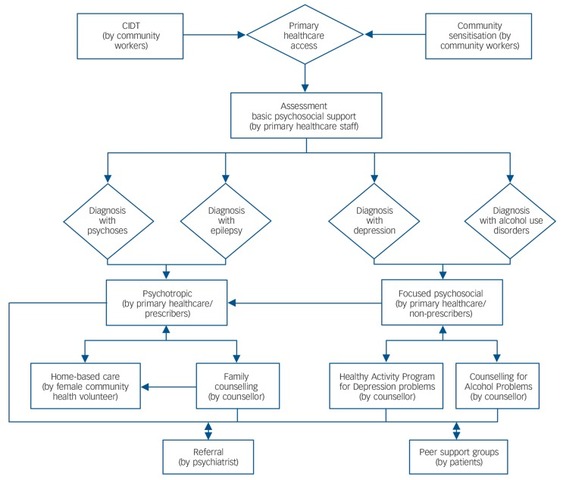Development and pilot testing of a mental healthcare plan in Nepal.
BACKGROUND: Mental health service delivery models that are grounded in the local context are needed to address the substantial treatment gap in low- and middle-income countries. AIMS: To present the development, and content, of a mental healthcare plan (MHCP) in Nepal and assess initial feasibility. METHOD: A mixed methods formative study was conducted. Routine monitoring and evaluation data, including client flow and reports of satisfaction, were obtained from patients (n = 135) during the pilot-testing phase in two health facilities. RESULTS: The resulting MHCP consists of 12 packages, divided over community, health facility and organisation platforms. Service implementation data support the real-life applicability of the MHCP, with reasonable treatment uptake. Key barriers were identified and addressed, namely dissatisfaction with privacy, perceived burden among health workers and high drop-out rates. CONCLUSIONS: The MHCP follows a collaborative care model encompassing community and primary healthcare interventions.
| Item Type | Article |
|---|---|
| ISI | 368470700004 |
| Date Deposited | 12 Oct 2015 19:06 |
Explore Further
- https://www.ncbi.nlm.nih.gov/pmc/articles/PMC4698553 (OA Location)
- 10.1192/bjp.bp.114.153718 (DOI)
- 26447173 (PubMed)

